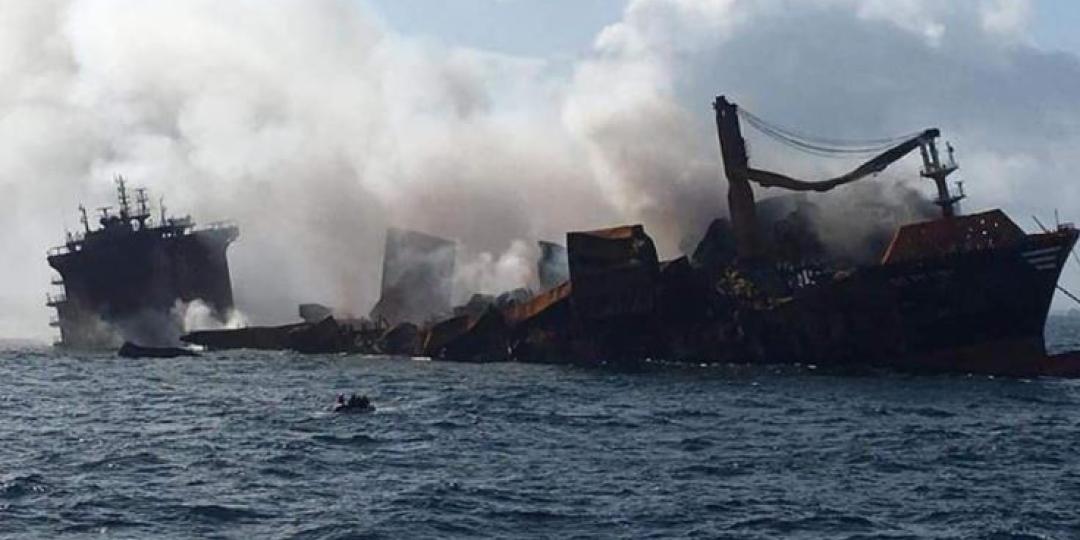Questions are being asked about how a cargo vessel, the X-Press Pearl, which reported an acid leak from one of the 1 486 containers it was carrying well in advance of the fire it finally caused, could have been allowed to be completely gutted before it sank a week ago off the east coast of Colombo.
International aid workers, equipped with the latest technology in firefighting methods, as well as rescue and salvaging teams from both Sri Lanka and the international community, tried in vain to save the stricken ship whose deck had been engulfed for well over a week.
Finally the blaze, which many say could have been avoided if two ports had allowed the 186-metre vessel to discharge its leaking cargo, was extinguished on June 2 when the Pearl sank during attempts to pull it to deeper water.
Probing questions were raised while the 2 700-TEU vessel’s owners were still frantically working to salvage cargo from the vessel they had only taken into commission in February.
Now, as Sri Lanka starts to take stock of a shipping disaster off its main port, and amid mounting fear that the Pearl’s 25 tons of nitric acid could trigger the worst environmental disaster in history, scrutiny of port operators in Qatar and India is intensifying.
Data gathered from the Pearl’s voyage shows that the ports of Hamad and Hazira refused the Pearl permission to berth, despite reports at the time that the leak, which was then still manageable, could have been contained through safe discharging.
Stuck with liquid spilling from the 25 tons of nitric acid it was carrying, the Pearl was forced to head further south-west through the Arabian Sea.
Although it’s still early days to apportion blame, QTerminals and Adani Ports, the operators of Hamad and Hazira, have a lot to answer for.
Maritime thought leaders want to know why, for example, they claimed they were complying with health, safety and environment (HSE) standards, and subscribing to corporate social responsibility (CSR) philosophies, when they flatly refused to provide safe harbour for the Pearl and its crew.
Claims of HSE and CSR look like high-minded fluff – nothing more – on the websites of the operators who failed to consider the lives of mariners when it mattered most, a leading maritime news site says.













